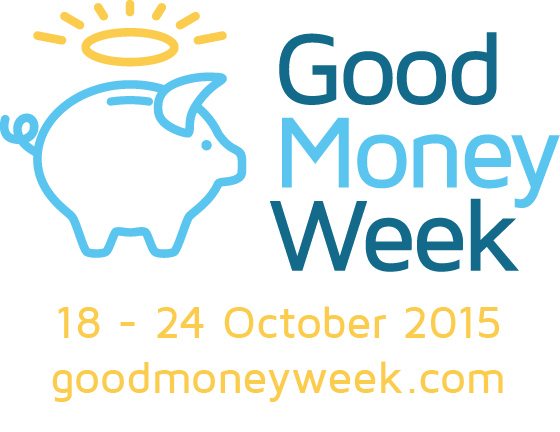

Features
Good Money Week: What’s on financial advice experts minds?
Lisa Stonestreet UKSIF’s Good Money Week Programme Director told Blue & Green: “There are advisers, such as those in the Ethical Investment Association (EIA), who have a long established track record of working with their clients to make sure financial objectives and values can be aligned.” This is what some of the EIA’s leading thinkers told us.
Julian Parrot of Ethical Futures said: “After a number of years of upheaval and change in the ethical sector, 2015 was a year of consolidation and restructuring. Leading the way, the Sustainable Futures team, confident in their new home at Alliance Trust, reacted positively to market dynamics by creation of a range of risk rated multi-asset funds.
“Elsewhere, we have seen a successful rebrand at EdenTree and RLAM have finally got ‘the paperwork’ sorted to bring the old CIS Sustainability funds under one roof and made tentative steps to market them. Following the divorce between Friends Life and F&C, we have also heard positive words from both camps looking to breathe new life into established funds. Finally, whilst funds are the usual focus, it was encouraging to see the Parmenion ethical portfolios featuring in the shortlist for the Moneyfacts ILP Awards.
“Hope springs eternal for a range of new funds and a surge in demand – but I feel this will not materialise without growth in retail distribution, therefore my wish for next is simply that the marketing teams get behind the promotions of quality funds that have in many cases outshone their mainstream peers in recent year. Likewise, I call on my fellow IFA’s to recognise the nascent demand amongst their clients or even just to consider a particular ethical or sustainable fund as a useful portfolio diversifier.”
Lee Coates OBE of Ethical Investors said: “Good Money week is a crucial element in the growth of responsible investment, but it has to contend with ingrained barriers in the financial services industry. These barriers are two-fold: Lack of Regulatory guidance – whilst the Regulator requires advisers to take note of a client’s Attitude to Risk (AtR) before giving advice (and avoid this area at their peril) there is no such guidance on ascertaining a client’s attitude to the impact of their investments.
“By impact I am referring to the social, environmental and sustainable impact of placing their money in Fund A or Fund B. For those who would be given the choice, investing responsibly is just as important as their AtR. The lack of direction from the Regulator thereby leads to the second barrier.
“Poor financial advice – advisers have a requirement to consider a client’s AtR, needs and objectives when giving advice – the Know Your Client requirements. However, it really is up to the adviser to decide what they want to know and anything, such as responsible investment, that might get in the way of a sale is clearly not needed! If advisers were doing their job properly they would automatically need to know if each client had any social, religious, environmental or other aspect of their life which should be incorporated into the advice process.
“It is true (and sad) that many people will not apply any values at all other than profit to their investments but by asking the question of all clients a good adviser can do their job properly. By choosing not to ask the question an adviser is making decisions on behalf of a client that are not theirs to make.“
Lisa Hardman of Investing Ethically said: “It seems as if more attention is being paid to SRI at a high level such as “Zurich pledges to focus 10 per cent of investments on delivering ‘positive impact’ ” and an increasing number of companies are taking individual action on a range of sustainability issues, however, this is not translating into more funds for retail investors.
“The range of funds has not significantly changed over the last couple of years although we understand from a number of the fund managers already offering ethically screened funds that some potentially new ethically screened funds are being consulted on so we hope the overall range of funds will increase over the next few years. We are not presently seeing new fund managers coming to the table to offer ethically screened funds.
“The main ethical issues our clients focus on are currently: The arms trade and tobacco, fossil fuels and wanting to invest positively. Just avoiding ‘bad’ stuff is not enough. We are getting more questions about crowdfunding and supporting social enterprise and local business.”
John Ditchfield of Barchester Green said: ““My view is that 2016 is likely to be a big year for responsible investment as the movement to divest from fossil fuels continues to win support from major trusts, foundations and other corporate investors. We also think private investors are finally getting the message that responsible investments can performance very well and that will lead to more activity from individuals investing their savings and/or moving to responsible funds.
“Looking at our own business the merger of Barchester, Castlefield and GAEIA is exciting news because this will create a really substantial and sustainable advice service with the right structure and vision to grow into the mainstream; the group assets under advice will be around £430M”.
Tanya Pein of IN2 Consulting said: “All pension money belongs to individual members and they care deeply about these issues. Responsible investment (RI) is mainstream: retail investors hear warnings about the financial risk of climate change from the Bank of England et al, and they regularly ask about it.
“Retail investors place their trust their fund managers to act on bad practice of all kinds – and increasingly they want specific information about what engagement is going on; not just reassurance. There are expert RI advisers out there – look them up on the EIA website. There is more demand for RI advice than there are advisers to meet it, so it’s smart for all advisers across the UK to use the Good Money Week resources and learn more.
Independent SRI Consultant John Fleetwood of 3D Investing added: “I’d like to see more funds following WHEB and Impax’s lead by issuing impact reports. Given that many investors base investment decisions on social impacts as well as financial returns, measuring impact can be just as important as monitoring financial performance.
“I’d also encourage fund managers to publish all of their holdings with a brief description of the nature of the business activity. It’s actually remarkable how difficult it can be to get the full report and accounts from some funds.
“The short form report is widely available but this only lists the top 10 holdings. In some instances fund managers insist on sending paper copies running to several hundreds of pages which is absolutely crackers. Come on guys, at the very least it must be easy to publish a pdf on your web site.”
UKSIF’s Stonestreet again: “Good Money Week is an excellent opportunity for advisers [such as those above] to highlight their expertise and for those who may less experienced in this particular area to learn more about how best to meet their clients’ needs in an evolving and growing market.”
“As increasing numbers of investors look to combine their environmental and social concerns with their financial decisions it’s never been more important for advisers to be aware of how to accurately reflect this in their approach to financial planning.”


 Environment11 months ago
Environment11 months agoAre Polymer Banknotes: an Eco-Friendly Trend or a Groundswell?

 Features10 months ago
Features10 months agoEco-Friendly Cryptocurrencies: Sustainable Investment Choices

 Features12 months ago
Features12 months agoEco-Friendly Crypto Traders Must Find the Right Exchange

 Energy10 months ago
Energy10 months agoThe Growing Role of Solar Panels in Ireland’s Energy Future



























